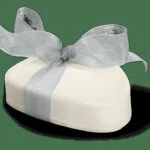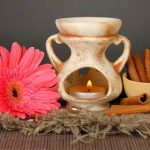
Aromatherapy has long been revered for its ability to enhance well-being through the power of scent. The use of aromatic plant extracts and essential oils dates back thousands of years, with ancient civilizations harnessing the therapeutic benefits of these scents. Today, aromatherapy continues to captivate individuals seeking natural remedies for relaxation, stress relief, sleep enhancement, and mood enhancement.
The practice of aromatherapy can be traced back to ancient civilizations such as Egypt, China, and India. These cultures recognized the potent effects that certain scents had on their physical and mental well-being. From burning incense in religious rituals to creating fragrant oils for medicinal purposes, aromatherapy has played a significant role throughout history in promoting healing and balance.
At its core, aromatherapy is based on the belief that specific scents can directly affect our emotions and physiology. When we inhale an aroma, it travels directly to our olfactory system – the part of our brain responsible for processing smells. From there, it triggers a cascade of reactions that can influence everything from our mood to our immune response.
In this article series on aromatherapy scents, we will delve into different aspects of this ancient practice. We will explore the history and origins of aromatherapy, uncovering the roots of scented healing. We will also uncover the science behind how these fragrances soothe our senses and offer therapeutic benefits. Furthermore, we will dive into popular aromatherapy scents and their unique healing properties.
Whether you are new to aromatherapy or a seasoned enthusiast, this series will provide you with valuable insights and practical tips for incorporating scent therapy into your daily life. Join us as we unlock the power of aromatherapy scents and embark on a journey towards enhanced well-being.
History and Origins of Aromatherapy
An Ancient Practice
Aromatherapy is not a new concept; it has been used for thousands of years in various cultures around the world. The history and origins of aromatherapy can be traced back to ancient civilizations such as Egypt, China, India, and Greece. These cultures recognized the power of scents for healing and well-being long before modern science confirmed their efficacy.
Ancient Egypt: The Birthplace of Aromatherapy
One of the earliest known records of the use of aromatherapy comes from ancient Egypt. Egyptians used aromatic plants and resins for both medicinal and cosmetic purposes. They believed that these fragrances had spiritual significance and could bring balance to the body, mind, and spirit. The famous burial mask of Tutankhamun was also found to contain traces of essential oils, providing evidence that aromatherapy was an integral part of Egyptian culture.
Ancient Greece and Rome: Aromas for Health
In ancient Greece, the father of medicine, Hippocrates, explored the therapeutic properties of plants and herbs extensively. He believed that different scents had different effects on the body and mind. Similarly, the Romans also embraced aromatherapy in their daily lives; they used scented oils in baths to promote relaxation and rejuvenation.
Ayurveda and Traditional Chinese Medicine: Balancing Through Aromatic Herbs
The practices of Ayurveda in India and Traditional Chinese Medicine (TCM) also incorporated aromatherapy principles. In Ayurveda, specific scents were used to balance doshas or energies within the body, while TCM employed aromatic herbs to treat various ailments by restoring harmony between yin and yang energies.
Modern Rediscovery
After centuries of being considered a pseudoscience, aromatherapy experienced a resurgence in popularity in the 20th century. French chemist René-Maurice Gattefossé is credited with coining the term “aromatherapy” after he discovered the healing properties of lavender oil while treating a burn. With advancements in technology and research, modern science has substantiated many of the historical claims about aromatherapy’s effectiveness.
Understanding the history and origins of aromatherapy allows us to appreciate its rich cultural heritage and gain insights into its timeless healing potential. From ancient civilizations to the present day, aromatherapy continues to be valued for its ability to enhance well-being through the power of scents.
Understanding Aromatherapy Scents
Aromatherapy is a holistic healing practice that utilizes the power of scents to enhance well-being. The use of aromatherapy scents dates back thousands of years, with evidence of its practice found in ancient civilizations such as Egypt, China, and India. But what is it about these fragrances that make them so soothing and therapeutic?
Understanding the science behind aromatherapy scents can help us appreciate their healing potential even more. When we inhale an aroma, it travels through our olfactory system and stimulates the limbic system in our brain. The limbic system plays a crucial role in regulating emotions, memories, and physiological responses. This connection between scent and emotions forms the basis of aromatherapy’s effectiveness.
One key component of aromatherapy scents are essential oils, which are highly concentrated plant extracts obtained from flowers, leaves, fruits, or other parts of plants. These oils contain volatile compounds that contribute to their unique fragrance and therapeutic properties. For example, lavender essential oil is known for its calming effects on both the mind and body, while citrus oils like lemon or orange can uplift mood and boost energy levels.
| Aromatic Compound | Therapeutic Benefits |
|---|---|
| Linalool | Calming and stress-relieving |
| Limonene | Mood uplifting and energizing |
| Eucalyptol | Respiratory relief and mental clarity |
In addition to essential oils, aromatherapy scents can also come from other sources such as herbs, spices, flowers, or even synthetic fragrances. Each scent has unique therapeutic benefits, and the choice of aromatherapy scents depends on the specific needs and preferences of the individual. It’s important to note that not all scents work the same for everyone, as this can vary based on personal experiences and associations with certain smells.
Understanding the science behind aromatherapy scents allows us to appreciate their healing potential and make informed choices when utilizing them for well-being. By exploring different scents and their therapeutic benefits, we can create personalized blends that cater to our specific needs, whether it’s stress relief, sleep enhancement, or mood enhancement. Aromatherapy offers a natural and pleasant way to support our physical, mental, and emotional well-being.
Popular Aromatherapy Scents and Their Therapeutic Benefits
Lavender
Lavender is one of the most popular aromatherapy scents, known for its calming and soothing properties. This fragrant purple flower has been used for centuries to promote relaxation and reduce anxiety. It is commonly used in the evenings or before bedtime to help with sleep. In addition to its calming effects on the mind, lavender also has analgesic properties, making it useful for relieving headaches and muscle tension.
Peppermint
If you’re looking for a scent that invigorates and refreshes, peppermint is an excellent choice. The cool and minty aroma of peppermint essential oil can help improve mental alertness and concentration. It is often used as a natural remedy for headaches, sinus congestion, and nausea. Peppermint oil can also be beneficial for reducing fatigue and boosting energy levels.
Citrus
Citrus scents, such as lemon, orange, and grapefruit, are known for their uplifting and energizing properties. These refreshing aromas can help improve mood, increase focus, and relieve stress. Citrus oils are often used in aromatherapy blends designed to enhance positivity and happiness. They are also commonly used in cleaning products due to their fresh scent and antibacterial properties.
Rosemary
Rosemary has a distinct herbal fragrance that is both invigorating and stimulating. This aromatic herb has been traditionally used to improve memory and mental clarity. It can help combat mental fatigue and promote concentration during activities that require focus, such as studying or working. Rosemary oil is also believed to have antiseptic properties when applied topically.
Sandalwood
Sandalwood essential oil is frequently used in aromatherapy for its grounding effects on the mind and body. Its warm woody scent promotes a sense of calmness, making it ideal for relaxation and meditation. Sandalwood is also known to help reduce anxiety and induce a state of tranquility. Some studies have even suggested that sandalwood may have anti-inflammatory properties.
Exploring the wide range of options when it comes to aromatherapy scents is a delightful journey that allows individuals to find the fragrances that resonate with them personally. Whether you prefer floral, citrusy, minty, or woody aromas, there is an essential oil or blend out there for you. Experimenting with different scents and understanding their therapeutic benefits can greatly enhance your well-being by harnessing the power of aromatherapy in your daily life.
Essential Oils for Aromatherapy
Aromatherapy is a popular holistic healing practice that utilizes the power of scents to enhance well-being. At the core of aromatherapy are essential oils, which are highly concentrated extracts from plants. These pure scented oils have been used for centuries for their therapeutic properties, and they continue to be widely used today.
Essential oils are derived from various parts of plants such as flowers, leaves, stems, and roots. The extraction process involves steam distillation or cold pressing to capture the potent fragrances and therapeutic compounds present in the plant material.
Each essential oil has its own unique scent profile and therapeutic benefits. For example, lavender essential oil is known for its calming properties and is often used to promote relaxation and relieve stress. On the other hand, eucalyptus essential oil has a refreshing aroma and is commonly used in respiratory treatments to alleviate congestion.
To effectively use essential oils for aromatherapy, it is important to understand their specific properties and potential side effects. It’s advisable to dilute essential oils with carrier oils before applying them topically or inhaling them through diffusers. Some popular carrier oils include jojoba oil, coconut oil, and almond oil.
It’s worth noting that not all essential oils are safe for everyone, especially pregnant women, children, and individuals with certain medical conditions. Researching each specific essential oil and consulting with a qualified aromatherapist or healthcare professional can help ensure safe usage.
Incorporating essential oils into your aromatherapy routine can unleash the healing potential of these pure scented oils. Whether you want to create a relaxing atmosphere at home or address specific health concerns such as pain relief or immune support, there is an extensive range of options available for you to explore in the world of aromatherapy scents.
DIY Aromatherapy Blends
Aromatherapy is a powerful tool that can be used to enhance relaxation and promote overall well-being. One of the most exciting aspects of aromatherapy is the ability to create personalized scents through do-it-yourself (DIY) blends. By combining different essential oils, individuals can tailor their aromatherapy experience to meet their specific needs and preferences.
Crafting personalized aromatherapy blends allows individuals to experiment with different scents and create unique combinations that resonate with them on a deeper level. Whether it’s lavender for relaxation, peppermint for energy, or citrus for mood enhancement, DIY blends offer endless possibilities for creating the perfect scent.
To start crafting your own aromatherapy blend, it’s important to understand the different properties and benefits of various essential oils. Some oils have calming effects, while others are invigorating or uplifting. By familiarizing yourself with the attributes of each oil, you can begin to mix and match them based on your desired outcome.
| Essential Oil | Properties |
|---|---|
| Lavender | Calming, soothing |
| Bergamot | Relaxing, uplifting |
| Ylang Ylang | Sedative, stress-relieving |
To create this blend, simply combine a few drops of each essential oil in a dark glass bottle and shake well before use. You can then add a few drops of the blend to a diffuser or mix it with a carrier oil for topical application.
When creating your own DIY blends, it’s important to remember that essential oils are highly concentrated and should be used with caution. Always do a patch test before applying the blend to your skin and dilute the oils properly to prevent any adverse reactions.
By exploring the world of DIY aromatherapy blends, you can tap into your creativity and create personalized scents that promote relaxation and wellness in your everyday life. Whether you’re looking for stress relief, mood enhancement, or better sleep, crafting your own aromatherapy blends allows you to take control of your well-being and enjoy the benefits of scented healing.
Aromatherapy Scents for Stress Relief
Aromatherapy has long been recognized as a natural and effective way to alleviate stress and promote relaxation. The power of aromatherapy scents lies in their ability to stimulate the olfactory system, which is directly connected to the emotional center of the brain. By inhaling specific fragrances, individuals can experience a sense of calm and tranquility, helping to reduce stress levels and promote overall well-being.
Certain aromatherapy scents have been found to be particularly effective in relieving stress. Lavender, for example, is widely regarded as one of the best essential oils for promoting relaxation. Studies have shown that breathing in lavender oil can lower heart rate and blood pressure, leading to a reduction in feelings of anxiety and stress. Another popular scent for stress relief is chamomile, known for its calming properties that help soothe both the mind and body.
In addition to lavender and chamomile, there are several other aromatherapy scents that can aid in stress relief. Bergamot oil has been found to have mood-boosting effects and can help reduce stress levels. Ylang ylang oil is known for its sedative properties and can promote a sense of peace and relaxation. Frankincense oil has also been used for centuries to induce feelings of calmness and ease tension.
Overall, incorporating aromatherapy scents into your daily routine can be a powerful tool for managing stress. Whether through the use of essential oils or scented candles, taking the time to indulge in these soothing fragrances can provide much-needed moments of relaxation in our fast-paced lives. By finding your favorite stress-relieving aroma and incorporating it into your self-care routine, you can reap the benefits of aromatherapy for a healthier mind and body.
| Aromatherapy Scent | Therapeutic Benefits |
|---|---|
| Lavender | Reduces anxiety and stress levels, promotes relaxation |
| Chamomile | Soothes the mind and body, induces feelings of calmness |
| Bergamot | Mood-boosting effects, reduces stress |
| Ylang ylang | Promotes peace and relaxation, has sedative properties |
| Frankincense | Induces calmness, eases tension |
Aromatherapy Scents for Sleep
A good night’s sleep is essential for overall well-being and health. However, many people struggle to achieve restful sleep due to various factors such as stress, anxiety, or insomnia. Aromatherapy offers a natural and effective solution to promote better sleep by incorporating soothing scents into your bedtime routine. By creating a relaxing bedtime ritual with scented oils, you can enhance your sleep quality and wake up feeling refreshed.
The Science Behind Aromatherapy Scents for Sleep
The use of aromatherapy scents for sleep is based on the powerful effect that certain fragrances have on our brain and body. The olfactory system, responsible for our sense of smell, is intricately connected with the limbic system which regulates emotions, mood, and memory. When we inhale pleasant scents, they trigger specific chemical reactions in the brain that can induce feelings of relaxation and calmness.
Certain aromatherapy scents have been found to be particularly effective in promoting sleep. Lavender is one of the most popular choices, known for its calming properties that can reduce anxiety and improve sleep quality. Another beneficial scent for sleep is chamomile, which has sedative effects and helps to ease nerves and promote relaxation.
Creating a Relaxing Bedtime Ritual
Incorporating aromatherapy scents into your bedtime ritual can help signal to your body and mind that it’s time to unwind and prepare for sleep. Here are some tips on how to create a relaxing bedtime ritual using scented oils:
- Choose Your Essential Oil: Select an essential oil with sleep-promoting properties such as lavender or chamomile. Make sure to choose high-quality oils for the best therapeutic benefits.
- Diffuse or Apply: Decide whether you want to use a diffuser or apply the oil topically. You can diffuse the oil in your bedroom before going to bed or apply a small amount to your pillow or wrists.
- Prepare Your Space: Create a calming environment in your bedroom by dimming the lights, playing soft music, and clearing any clutter. This will help create a peaceful atmosphere conducive to sleep.
- Practice Mindfulness: Before going to bed, take a few moments to unwind and quiet your mind. Engage in relaxation techniques such as deep breathing or meditation to prepare your body for sleep.
- Establish Consistency: To maximize the effectiveness of aromatherapy scents for sleep, it’s important to establish a consistent bedtime routine. This will allow your body and mind to associate the scent with relaxation and signal that it’s time for sleep.
By incorporating aromatherapy scents into your bedtime routine, you can create a relaxing and soothing environment that promotes better sleep. Experiment with different oils and find the scent that works best for you. Remember to consult with a healthcare professional if you have any underlying health conditions or concerns about using essential oils. Sweet dreams await.
Aromatherapy Scents for Mood Enhancement
Aromatherapy is not only beneficial for relaxation and stress relief, but it can also be a powerful tool for mood enhancement. Certain scents have the ability to uplift our spirits and boost positivity and happiness. By incorporating these fragrances into our daily lives, we can harness the therapeutic power of aromatherapy to improve our overall well-being.
One popular scent known for its mood-enhancing properties is citrus. Citrus fruits like lemon, orange, and grapefruit are commonly used in aromatherapy to promote feelings of joy, energy, and optimism. These fruity scents are believed to stimulate the production of serotonin, a neurotransmitter responsible for regulating mood. To incorporate citrus scents into your routine, you can use essential oils in a diffuser or add a few drops to your bathwater.
Another fragrance that can elevate your mood is lavender. Lavender has been used for centuries to promote relaxation and relieve anxiety, but it can also help boost your mood. Its calming properties can help reduce stress and create a sense of tranquility. You can use lavender essential oil in a diffuser or mix it with a carrier oil for a soothing massage.
In addition to citrus and lavender, there are several other aromatherapy scents that can help enhance your mood. Peppermint is invigorating and refreshing, perfect for creating an energizing atmosphere. Rosemary promotes mental clarity and focus while also uplifting the spirits. Vanilla has a comforting and warm aroma that can evoke feelings of happiness and nostalgia.
Incorporating aromatherapy scents for mood enhancement into your daily life is easy with the wide range of options available. You can use candles, room sprays, or personal inhalers infused with these uplifting fragrances throughout your home or workspace. Experiment with different combinations of essential oils to find the scent that resonates with you the most. By harnessing the power of aromatherapy scents, you can create a positive and uplifting environment that supports your overall well-being.
Incorporating Aromatherapy Scents into Daily Life
Introducing aromatherapy scents into your daily life can greatly enhance your overall well-being. Whether you want to reduce stress, improve sleep, or boost your mood, incorporating scented healing into your routine is a powerful way to achieve these goals. Here are some practical tips to help you incorporate aromatherapy scents into your daily life:
- Diffuse Essential Oils: One of the easiest ways to enjoy the therapeutic benefits of aromatherapy scents is by using an essential oil diffuser. Simply add a few drops of your favorite essential oil to the diffuser and let it fill the air with its soothing fragrance. You can choose oils like lavender for relaxation, peppermint for focus, or citrus scents for an energy boost.
- Create Personalized Blends: Experiment with creating your own personalized aromatherapy blends based on your specific needs and preferences. Start by selecting a carrier oil such as jojoba or sweet almond oil and add a few drops of essential oils that complement each other. For example, blend lavender and chamomile for a calming effect or mix orange and bergamot for an uplifting aroma.
- Use Aromatherapy in Bath Time: Turn bath time into a luxurious and therapeutic experience by adding a few drops of your favorite essential oils to warm bathwater. The steam from the water will release the fragrance, creating a relaxing environment that allows you to unwind after a long day. Oils like eucalyptus or rosemary are great options for clearing sinuses and easing muscle tension.
- Make DIY Room Sprays: Another way to incorporate aromatherapy scents into your daily life is by making DIY room sprays. Fill a small spray bottle with distilled water and add several drops of essential oil(s) of your choice. Shake well before each use and spray the mist around your living space, pillow, or even on your clothes for an instant mood boost.
By following these practical tips, you can easily introduce the healing power of aromatherapy scents into your daily routine. Whether you choose to diffuse essential oils, create personalized blends, use them during bath time, or make DIY room sprays, incorporating scented healing into your life can have a profound positive impact on your overall well-being. Embrace the opportunity to enhance your physical and mental health with the therapeutic benefits of aromatherapy scents.
Conclusion
In conclusion, the therapeutic power of aromatherapy scents is undeniable. Throughout history, these fragrances have been used to enhance well-being and promote healing. The science behind aromatherapy scents explains how they can soothe the mind and body, relieve stress, improve sleep, and elevate mood.
There is a wide range of popular aromatherapy scents to choose from, each with its own unique therapeutic benefits. Whether you prefer lavender for its calming properties or citrus oils for their uplifting effects, there is a scent to suit every individual’s needs and preferences. Additionally, using essential oils in aromatherapy allows you to unleash the full healing potential of pure scented oils.
Crafting personalized blends of aromatherapy scents is another way to incorporate this practice into your daily life. By creating your own blends, you have the opportunity to tailor the scents specifically to your needs, whether that be relaxation, stress relief, or mood enhancement. Remember to experiment with different combinations until you find what works best for you.
Incorporating aromatherapy scents into your routine doesn’t have to be complicated or time-consuming. It can be as simple as adding a few drops of essential oil to a bath or diffusing your favorite scent in your bedroom before bed. By embracing the therapeutic power of aromatherapy scents, you are taking a proactive step towards enhancing your overall well-being. So why not start incorporating these soothing fragrances into your daily life and experience their transformative effects firsthand?
Frequently Asked Questions
What scents for aromatherapy?
Aromatherapy utilizes various scents to promote a sense of wellbeing and relaxation. Some commonly used scents for aromatherapy include lavender, which is known for its calming properties and ability to reduce stress and anxiety. Peppermint is another popular scent that can help with mental clarity and relieve headaches or congestion.
Citrus scents like lemon, orange, or grapefruit are often used to uplift mood and improve focus. Eucalyptus is frequently employed for its refreshing and clearing effects on the respiratory system. Additionally, scents like chamomile, rosemary, ylang-ylang, and sandalwood can also be used in aromatherapy to address a variety of physiological and emotional concerns.
What are the 10 best essential oils to try for aromatherapy?
There are countless essential oils available for use in aromatherapy, each offering unique benefits. However, ten popular essential oils that are widely recommended for beginners to try in aromatherapy are lavender, tea tree, lemon, eucalyptus, peppermint, chamomile (both Roman and German), bergamot, rosemary, and ylang-ylang. Lavender oil is renowned for its calming properties while tea tree oil possesses antiseptic qualities that make it ideal for skin issues. Lemon oil provides an uplifting burst of energy while eucalyptus oil helps with respiratory concerns.
Peppermint oil aids digestion and relieves headaches whereas chamomile soothes the mind and body. Bergamot elevates mood while rosemary boosts mental clarity. Lastly, ylang-ylang promotes relaxation and balances emotions.
What are the 7 essential oils?
The seven essential oils that serve as the foundation of many aromatherapy practices are lavender oil, tea tree oil, lemon oil, peppermint oil, eucalyptus oil, chamomile oil (commonly both Roman and German), and rosemary oil. Lavender essential oil is known for its calming effects on the mind and body, making it a frequent choice for relaxation and sleep. Tea tree oil is prized for its antimicrobial properties, making it useful for treating skin issues such as acne or fungal infections. Lemon oil has uplifting and refreshing qualities that can boost energy and mood.
Peppermint oil aids digestion and relieves headaches while eucalyptus oil helps clear congestion and supports respiratory health. Chamomile oil is often used for its calming effects on the nervous system. Lastly, rosemary oil is believed to enhance mental clarity and focus. These seven essential oils form a versatile toolkit for beginners in aromatherapy.




